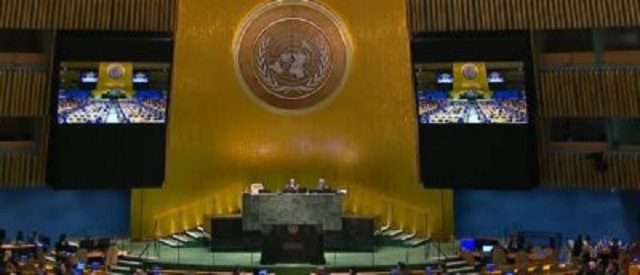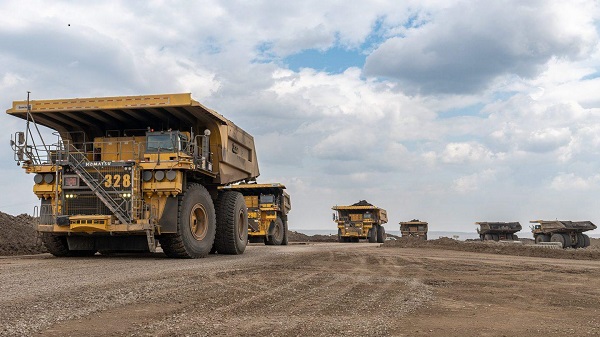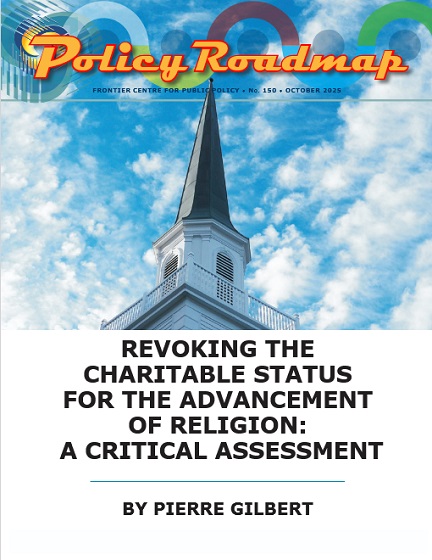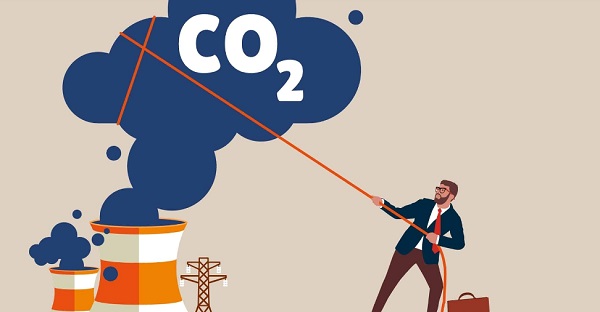Environment
The United Nations Couldn’t Be More Wrong When It Comes To Climate Change

 From the Daily Caller News Foundation
From the Daily Caller News Foundation
By JASON ISAAC
They still haven’t learned their lesson.
For decades, politicians and climate activists have been setting deadlines for humanity, brazenly preaching that we have just a few years left to stave off our fiery doom. In fact, we were supposed to have passed the deadline for taking dramatic action to save the world in 2000, 2012, 2016 2020, and 2023.
The United Nations is now ramping up their rhetoric again, with climate executive secretary Simon Stiell boldly (and, apparently, not rhetorically) asking: “Who exactly has two years to save the world? The answer is every person on this planet.”
As usual, the U.N. couldn’t be more wrong when it comes to climate change. In fact, the science to which it demands blind loyalty shows there has never been a better time in human history to be alive.
One Obama energy advisor described our culture’s understanding of climate change as having “drifted so far out of touch with the actual science as to be absurdly, demonstrably false.” He was not wrong. While celebrities, activists, politicians, and left-leaning CEOs are crying that the sky is falling, data shows that “[c]limate-related disasters kill 99% fewer people” than they did a century ago. Even though the world’s population has quadrupled over the same time period, the risk presented by mild warming has grown smaller and smaller.
Interestingly, our resilience to climate-related disasters is improving at a far faster rate than deaths from other natural disasters like volcanic eruptions and earthquakes. Clearly, the weather isn’t the culprit here.
In fact, even if the U.N. and its climate cartel were right, there is remarkably little we could do anyway. The data models their scientists use to project future warming show that even cutting every drop of oil and every grain of coal from our society would change global temperatures by at most a few hundredths of a degree. Those models, by the way, have overshot warming every time, making them a highly suspect justification for spending trillions to force our society to make dramatic changes for climate change.
In fact, new studies cataloging 420,000 years of historical geological and weather data suggest that manmade greenhouse gas emissions are not strong enough to affect global temperatures.
So many of us, in our comfortably air-conditioned and Wi-Fi-enabled lives — far removed from the blue-collar energy producers toiling every day to power our society — have forgotten just how essential fossil fuels are to our existence. Our agriculture, manufacturing, healthcare, transportation, public safety, utilities, banking, construction, entertainment and more would collapse without constant access to affordable, reliable energy.
Fossil fuels are the reason that the percentage of people living in extreme poverty has plummeted all over the world. In the pre-Industrial Revolution era, most of the world’s population lived in extreme poverty; 50 years ago it was about half the world population; today, it is less than 10%. Infant mortality, malnutrition and infectious diseases have plummeted while GDP, education, gender equality, economic freedom and life expectancy have skyrocketed.
The average child born today in any part of the world has a better chance at a long, healthy, and fruitful life than ever before — thanks, in part, to the life-saving and life-improving benefits of abundant energy.
We need only look to the pockets of the world still suffering from energy poverty to understand just how fortunate we are to live in 2024 instead of 1724. In communities without electricity — which nearly a billion people still don’t have and billions more have only sporadic access to — life expectancies still hover in the 50s and mere survival requires physical toil unimaginable to the average American.
Women walk for hours to collect unsanitary water and firewood or dung to burn in close quarters, exposing themselves to sexual assault and their whole families to deadly water-borne and lung disease. Children are fortunate to reach adulthood at all, let alone receive an education. Economic opportunity is close to nonexistent, even for men, outside subsistence farming.
Instead of protesting the fossil fuels that power our comfortable lives and spending trillions to possibly produce minute temperature change centuries from now, perhaps our world leaders should focus on solving the real problems facing real men, women, and children today. One of the easiest ways to do so is sharing the access to affordable, reliable energy we take for granted in the West.
I’ll keep embracing my high carbon lifestyle and hope that others get to do the same. See you in two years.
The Honorable Jason Isaac is CEO of the American Energy Institute and a senior fellow at the Texas Public Policy Foundation. He previously served four terms in the Texas House of Representatives.
The views and opinions expressed in this commentary are those of the author and do not reflect the official position of the Daily Caller News Foundation.
Business
WEF has a plan to overhaul the global financial system by monetizing nature

From LifeSiteNews
By Tim Hinchliffe of The Sociable
The WEF is plowing full steam ahead with the globalist agenda to monitor and monetize everything in nature, including the air we breathe, the water we drink, and the very earth we walk upon.
With billionaires Larry Fink and Andre Hoffmann as the new co-chairs, the World Economic Forum (WEF) publishes a 50-page blueprint on how to monetize everything in nature.
The WEF’s latest insight report, “Finance Solutions for Nature: Pathways to Returns and Outcomes,” provides “stakeholders” with dozens of financial solutions for monetizing everything in nature.
Nature pricing, biodiversity crediting schemes, natural asset companies, debt-for-nature swaps, and so much more are all packed into this agenda to overhaul the global financial system with nature-based activities:
The landscape of nature finance is rapidly evolving. From sovereign debt instruments and blended capital platforms to biodiversity credits and emerging asset classes, a growing range of mechanisms is being deployed to fund, finance and de-risk nature-positive action.

The WEF leadership page says that in their work on the board of trustees, “members do not represent any personal or professional interests.”
However, the target audiences for latest WEF insight report are “institutional investors, banks, asset managers, and development actors” – the very business interests that Hoffmann and Fink represent.
WEF interim co-chairs Larry Fink and Andre Hoffmann have everything to gain in their business dealings should the documentation, monetization, and tokenization of everything in nature ever come to full fruition.
And they are well on their way.
Fink’s BlackRock manages over $11 trillion in assets, and last year BlackRock said it was “conducting proprietary research on natural capital investment signals, identifying companies poised for financial advantage in avoiding nature-related risks or leaning into opportunities. Those signals cover themes such as energy management, water management, waste management and biodiversity – and can feed into portfolio construction or support custom exposures.”
Hoffmann is also a key player in a whole host of so-called green financing initiatives, including biodiversity crediting schemes, through his various roles as founder, president, and chairman at several companies and NGOs such as: Innovate 4 Nature – the “accelerator for nature-positive solutions” and Systemiq – the “system change company” established specifically to advance U.N. Agenda 2030.
“The economy depends on natural resources. Their value derives not only from their use as direct inputs to production – such as timber for construction – but also for their benefits to society like living trees that help clean the air. Economists use the term “natural capital” to refer to the total value that natural resources provide to the economy and to people.” — BlackRock, Capital at risk: nature through an investment lens, August 2024
Investigative journalist Whitney Webb: BlackRock and other companies are attempting to seize control over the natural world under the guise of "saving the planet".
"BlackRock being able to unlock and take control of as many natural assets as possible… is obviously a way for… pic.twitter.com/XgRBBqW7qr
— Wide Awake Media (@wideawake_media) February 26, 2025
“Debt-for-nature swaps [DNS] are a financial mechanism that allow countries to restructure bilateral or multilateral debt in exchange for commitments to fund local conservation and restoration. They are also known as ‘debt-for-nature conversion.’” — WEF, Finance Solutions for Nature: Pathways to Returns and Outcomes, September 2025

Is your country millions, billions, or trillions in debt? No problem!
With debt-for-nature swaps, you can restructure your nation’s debt just by letting somebody else come in and take control of your natural resources under the guise of conservation and restoration, but what they’ll really be doing is forcing you to “take out private insurance policies to ‘mitigate the financial impact of natural disasters‘ as well as ‘political risk,’” as investigative journalists Whitney Webb and Mark Goodwin report in Bitcoin Magazine.
Don’t have any money, but want to create value out of thin air, water, soil, or trees? You can set up natural asset companies that can “convert the full economic value of nature into financial flows via equity models.”

Want to help asset managers, bankers, and hedge fund execs get extremely rich while leaving you with only a tiny fraction? Go ahead and get involved in a Payment for Environmental Services (PES) scheme, where financial incentives are provided to individuals or communities in exchange for maintaining or restoring ecosystem services, like carbon sequestration or biodiversity conservation
And if you’re compliant with their rules, you can be rewarded by producing “positive nature and biodiversity outcomes (e.g. species, ecosystems and natural habitats) through the creation and sale of either land or ocean-based biodiversity units over a fixed period” with biodiversity credits, aka “environmental credits.”
Prefer to be left alone and live on the property that you worked hard for all your life? You better be compliant with all the environmental regulations that are coming in the name of preserving biodiversity, so that the $44 trillion of economic value generated by nature doesn’t diminish.
With Larry Fink & Andre Hoffmann having everything to gain, today the WEF published a blueprint for the complete monetization of everything in nature. Natural Asset Companies, Biodiversity Credits, Debt for Nature Swaps, Payments for Ecosystem Services https://t.co/bV1SBKlM41 pic.twitter.com/knqErANBlV
— Tim Hinchliffe (@TimHinchliffe) September 11, 2025
“Environmental credits are verified units of positive environmental outcomes, including biodiversity, water, carbon and nutrient credits. Though developed independently, projects increasingly blend credits via stacking, bundling or stapling.” — WEF, Finance Solutions for Nature: Pathways to Returns and Outcomes, September 2025

“Nature is rapidly emerging as a strategic investment frontier and more institutional capital is flowing into new business models and projects.” — WEF, Finance Solutions for Nature: Pathways to Returns and Outcomes, September 2025
In keeping with the own self-interests of the co-chairs and their business relations, the report highlights “10 priority financial solutions” for these stakeholders to implement:
- Sustainability-linked bonds (SLBs):
- Commercial bonds tying coupon rates to nature-related targets for corporates or governments.
- Thematic (or use-of-proceeds) bonds:
- Bonds with proceeds earmarked for nature projects. Scaling-up requires clearer guidance and aggregation to improve outcomes for issuers and investors.
- Sustainability-linked loans (SLLs):
- Flexible debt, linking interest rates to nature-related targets. SLLs need simpler verification, standardized metrics and stronger triggers to drive nature-positive lending.
- Thematic (or use-of-proceeds) loans:
- Loans for specific nature-related projects. Greater clarity on taxonomies and aggregation is needed to enhance capital flows.
- Impact funds:
- Funds investing in nature-positive outcomes, often accepting higher risk or longer pathways to returns.
- Natural asset companies (NACs):
- Publicly and privately listed companies that convert the full economic value of nature into financial flows via equity models. NACs hold significant potential but need more transactions for price discovery and replicable investment blueprints.
- Environmental credits:
- Tradeable certificates for verified environmental benefits, used in compliance or voluntary markets.
- Debt-for-nature swaps (DNS):
- Mechanisms to restructure sovereign debt in exchange for conservation or restoration commitments, with investable components including bonds and loans.
- Payments for ecosystem services (PES):
- Contracts rewarding conservation for specific ecosystem services, driven by the public sector. Private sector schemes require longer contracts, aggregation and supply chain integration to scale up.
- Internal nature pricing (INP):
- Unexplored, voluntary shadow pricing or fee-based tools to incentivize nature-positive performance in companies or across investment portfolios, similar to internal carbon pricing (ICP).
“While some components of nature – such as food, timber and ecotourism are priced and traded in global markets, the value of many critical ecosystem services remains undervalued….
Carbon sequestration, water filtration, flood protection and pollination are often treated as ‘free’ inputs, despite underpinning our economies and societies.” — WEF, Finance Solutions for Nature: Pathways to Returns and Outcomes, September 2025

“The natural capital approach extends the economic concept of capital to the environment, conceptualizing stocks of natural resources as conventional goods worth restoring, maintaining and enhancing for their productive flows.
This approach includes both accounting – embedding nature in national and corporate balance sheets – and valuation – pricing nature’s contributions into cost-benefit and investment analysis.” — WEF, Finance Solutions for Nature: Pathways to Returns and Outcomes, September 2025
Putting prices on water, air, and soil is a hot topic among globalists at the U.N., the G20, the World Economic Forum (WEF), and the COP meetings.
At the WEF Annual Meeting in Davos this year, Singapore’s President Tharman Shanmugaratnam said that water credits and biodiversity credits should be “stapled” on to carbon credits.
Singapore President Tharman Shanmugaratnam tells the WEF he wants to put a price on everything in nature: "Just like we've got carbon credits, WE NEED TO DEVELOP THE MARKET FOR WATER CREDITS & BIODIVERSITY CREDITS" #wef25 https://t.co/wv04rzht3K pic.twitter.com/UuSiDBSuu3
— Tim Hinchliffe (@TimHinchliffe) January 21, 2025
"Much better that we work on a reliable CARBON CREDIT system with the stapling on of WATER & BIODIVERSITY CREDITS": Singapore President Tharman Shanmugaratnam at the WEF #wef25 https://t.co/wv04rzht3K pic.twitter.com/EhWCvZAsxj
— Tim Hinchliffe (@TimHinchliffe) January 21, 2025
The year prior, at the 2024 WEF Annual Meeting of the New Champions, aka “Summer Davos” meeting in communist China, University of Cambridge Institute for Sustainability Leadership CEO Lindsay Hooper told the panel on “Understanding Nature’s Ledger” that every part of the economy depends on nature, and that in order to protect natural systems, one solution would be to “bring nature onto the balance sheet.”
"We can't do business on a dead planet. If we're going to protect natural systems, one of the solutions is to bring nature onto the balance sheet; bring nature into the ways that decisions are made within business to allocate a value to it" Lindsay Hooper WEF #AMNC Summer Davos pic.twitter.com/Y1dpjMgmS6
— Tim Hinchliffe (@TimHinchliffe) June 27, 2024
In addition to putting “nature on the balance sheet,” another proposal coming at the end of the panel discussion suggested putting a tax on natural systems like water in the same vein as carbon taxes.
"Beyond carbon [taxes] let's think about other aspects of nature that are easier to quantify.. What about water? That's quite possible for us to start integrating systematically into current trading carbon pricing mechanisms" WEF managing director Gim Neo #AMNC24 Summer Davos pic.twitter.com/0rlomVk3ph
— Tim Hinchliffe (@TimHinchliffe) June 27, 2024
With putting prices on nature comes tokenization and derivatives.
At least that’s what former Bank of England adviser Michael Sheren said at COP27 in November 2022.
'Carbon is moving very quickly into a system where it's going to be very close to a currency' …
Next, 'We start thinking about putting prices on water, on trees, on biodiversity … How do we start tokenizing?': Michael Sheren, Former Bank of England Advisor #COP27 pic.twitter.com/r5Nw3b2aeo— Tim Hinchliffe (@TimHinchliffe) November 9, 2022
“Carbon, we already figured out, and carbon is moving very quickly into a system where it’s going to be very close to a currency, basically being able to take a ton of absorbed or sequestered carbon and being able to create a forward-pricing curve, with financial service architecture, documentation,” said Sheren.
And with carbon being close to a currency, “There are going to be derivatives.”
"The biggest challenge is how do we move from a SHAREHOLDER ECONOMY to a STAKEHOLDER ECONOMY" Andre Hoffmann WEF interim co-chair. Agenda 2030 advocate, Club of Rome member, Chatham House Adviser, heir to the 5th largest pharma company in the world, Roche https://t.co/NQlEF36IRy pic.twitter.com/kPI2jtDNxL
— Tim Hinchliffe (@TimHinchliffe) August 20, 2025
Now, under the newfound leadership of Fink and Hoffmann, whose personal business dealings stand everything to gain, the WEF is plowing full steam ahead with the globalist agenda to monitor and monetize everything in nature, including the air we breathe, the water we drink, and the very earth that we walk upon.
Reprinted with permission from The Sociable.
Alberta
How Alberta is moving to speed up oil sands reclamation with mine water treatment

From the Canadian Energy Centre
New standards to build on rules already in place for other mining sectors
In what the former Chief of the Fort McKay First Nation calls “a critical step in the right direction,” the Alberta government is moving to accelerate reclamation of more than 1.3 trillion litres of water stored in oil sands tailings ponds.
On Sept. 5, the province announced it will expedite setting standards that allow for “mine water” to be treated and released into the environment, building on the rules that are already in place for other mining operations across Canada.
“We cannot ignore this challenge, we need to keep working together to find practical and effective solutions that protect Indigenous rights, people and the environment,” said Chief Jim Boucher, a member of Alberta’s Oil Sands Mine Water Steering Committee.
That committee is behind a suite of nine recommendations that Alberta is putting into action to improve mine water management and tailings pond reclamation.
The Mining Association of Canada (MAC) says decades of research give the industry confidence that mine water can be safely treated and released once regulations are in place.
But that will take the federal government moving faster too.
Both the federal and provincial governments play a role in potential regulations for the treatment and release of oil sands mine water.
“Alberta is proposing science-based parameters to ensure the safe return of treated water used in oil sands mining, just as other provincial governments do for their respective mining sectors,” MAC CEO Pierre Gratton said in a statement.
“We are hopeful that this will accelerate the development of federal regulations – which we requested almost 15 years ago – to be similarly advanced.”
Gratton said setting standards for safe mine water release could unlock “significant investments” in oil sands reclamation and water treatment.
What are tailings ponds?
Tailings are a byproduct of mining operations around the world.
Oil sands tailings ponds are engineered basins holding a mix of mine water, sand, silt, clay and residual bitumen generated during the extraction process. There are eight operating oil sands mines with tailings ponds in northern Alberta.
Recycling water held in these basins helps operators reduce the amount of fresh water withdrawn from the Athabasca River.
In 2023, 79 per cent of the water used for oil sands mining was recycled, according to the Alberta Energy Regulator.
What is oil sands mine water?
Oil sands mine water is water that comes into contact with the various stages of oil sands mining operations, including bitumen extraction and processing.
Tailings ponds in the oil sands also hold water from significant amounts of rain and snow collected in the decades since the first mines began operating.
While the oil sands mining sector has reduced the amount of fresh water it uses per barrel of oil produced by nearly one-third since 2013, the total volume of mine water in tailings storage has grown as production has increased.
What’s in oil sands mine water?
The constituents of oil sands mine water requiring treatment for safe release are both typical of water in other industrial processes and unique to the oil sands sector.
MAC says common materials are suspended solids like sand, silt and clay, as well as a range of metals. These can be treated by a wide range of proven technologies already in use in Canada and globally.
Unique to oil sands mine water are organic compounds such as naphthenic acids. According to MAC, operators have demonstrated and continue to invest in processes to treat these to levels safe for environmental release.
How does mine water impact reclamation?
At the end of an oil sands mine’s life, operators must remove all infrastructure and restore the land to features of a self-sustaining boreal forest similar to what was there before.
Addressing the challenge of tailings ponds and the mine water stored in them is critical to the overall success of oil sands mining reclamation.
Why is mine water release important?
MAC says the only way to remove mine water in tailings ponds is to treat it for safe release to the environment.
Strict regulations allow for this process across Canadian copper, nickel, gold, iron ore, and diamond mining operations. But it is prohibited in the oil sands.
The safe release of treated oil sands mine water into the environment can reduce the need to store it, minimize further land disturbance and help reclamation happen faster.
MAC says operators have shown they can treat mine water to safe release levels, using processes that include innovative technologies developed through Canada’s Oil Sands Innovation Alliance.
What is Alberta doing?
Alberta has accepted the Oil Sands Mine Water Steering Committee’s nine recommendations aimed at speeding up solutions for safe mine water release.
The province says the recommendations, developed with input from industry, technology providers, Indigenous communities and scientists, will now be evaluated to determine how they can be put into practice.
-

 Censorship Industrial Complex1 day ago
Censorship Industrial Complex1 day agoCanada’s privacy commissioner says he was not consulted on bill to ban dissidents from internet
-

 Energy2 days ago
Energy2 days agoIndigenous Communities Support Pipelines, Why No One Talks About That
-

 Alberta1 day ago
Alberta1 day agoEnbridge CEO says ‘there’s a good reason’ for Alberta to champion new oil pipeline
-

 Business1 day ago
Business1 day agoFormer Trump Advisor Says US Must Stop UN ‘Net Zero’ Climate Tax On American Ships
-

 Business2 days ago
Business2 days agoFinance Committee Recommendation To Revoke Charitable Status For Religion Short Sighted And Destructive
-

 Alberta2 days ago
Alberta2 days agoOil Sands are the Costco of world energy – dependable and you know exactly where to find it
-

 Health2 days ago
Health2 days agoColorado gave over 500 people assisted suicide drugs solely for eating disorders in 2024
-

 Alberta1 day ago
Alberta1 day agoThe Technical Pitfalls and Political Perils of “Decarbonized” Oil






